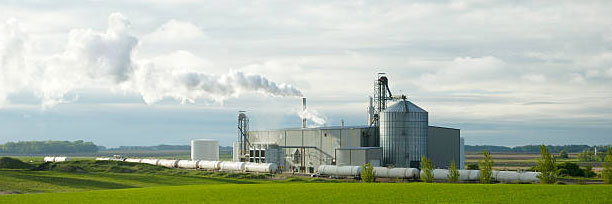Utilizing Regenerative Turbine Pumps in the Biodiesel Industry
The biodiesel industry plays a crucial role in addressing environmental concerns and reducing our reliance on fossil fuels. Biodiesel, a renewable and cleaner-burning alternative to conventional diesel fuel, is produced through a complex series of chemical processes. One essential component of biodiesel production is the efficient transfer of fluids and the management of various liquids within the production facilities. Regenerative turbine pumps have emerged as indispensable tools in this context due to their unique capabilities and suitability for the biodiesel manufacturing process.

Applications in the Biodiesel Industry:
-
Biodiesel Production:
One of the primary applications of regenerative turbine pumps in the biodiesel industry is the transfer of feedstocks and reactants during the production process. Biodiesel production typically involves a series of chemical reactions, such as transesterification, where vegetable oils or animal fats are converted into biodiesel. Regenerative turbine pumps play a crucial role in moving these viscous liquids and ensuring a consistent flow through various stages of the process. -
Glycerol Separation:
The biodiesel production process also generates glycerol as a byproduct. Separating glycerol from the biodiesel requires precise control of fluid flow and pressure. Regenerative turbine pumps are well-suited for this task due to their ability to handle high-viscosity fluids effectively. They help maintain separation efficiency and reduce the risk of emulsification, ensuring a more straightforward glycerol recovery process. -
Methanol Handling:
Methanol is commonly used as a reactant in biodiesel production, and its safe handling is critical. Regenerative turbine pumps can be employed to transfer and dose methanol accurately, ensuring it is added in the right proportions during transesterification reactions. The pumps' ability to provide consistent flow rates enhances the efficiency and safety of this step.Methanol is commonly used as a reactant in biodiesel production, and its safe handling is critical. Regenerative turbine pumps can be employed to transfer and dose methanol accurately, ensuring it is added in the right proportions during transesterification reactions. The pumps' ability to provide consistent flow rates enhances the efficiency and safety of this step. -
Acid and Catalyst Addition:
In some biodiesel production methods, acid catalysts are used to facilitate the transesterification process. Regenerative turbine pumps are instrumental in delivering these catalysts precisely and in the correct quantities, contributing to the overall process reliability.
Advantages of Regenerative Turbine Pumps in Biodiesel Production:
-
High Efficiency:

Regenerative turbine pumps are known for their exceptional efficiency, reducing energy consumption and operating costs in the biodiesel production process. -
Precision Control:
These pumps offer precise flow control and pressure management, ensuring accurate dosing and mixing of reactants and additives. -
Viscosity Tolerance:
Regenerative turbine pumps can handle high-viscosity fluids, such as vegetable oils and glycerol, without a significant drop in performance. -
Reliability:
Their robust construction and minimal maintenance requirements make them reliable assets in continuous biodiesel production processes. -
Safety:
Accurate and controlled fluid handling with regenerative turbine pumps enhances safety by minimizing the risk of spills or accidents.
Regenerative turbine pumps have proven to be invaluable tools in the biodiesel industry, contributing to the efficient and sustainable production of biodiesel fuel. Their ability to handle various fluids with precision, high efficiency, and reliability makes them essential components in the complex chemical processes involved in biodiesel production. As the biodiesel industry continues to grow and evolve, regenerative turbine pumps are likely to play an even more significant role in advancing the sector's sustainability and environmental objectives.

